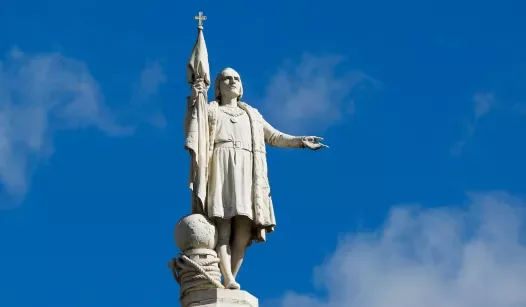The White House recently took a moment to recognize the courage, entrepreneurial spirit, religious fervor, and adventurous nature that characterized historical figures like Christopher Columbus. This acknowledgment invites us to reflect on Columbus’s legacy and the complex narratives surrounding his voyages.
Columbus, an Italian explorer sailing under the Spanish flag, is often credited with “discovering” the Americas in 1492. His expeditions opened the doors to European exploration and colonization of the New World, which had profound implications for the course of history. While his contributions to navigation and exploration are undeniable, they also serve as a reminder of the complicated and often painful history that followed his arrival.
In recent years, discussions about Columbus have sparked intense debates across the United States. Supporters of Columbus argue that his voyages were pivotal in connecting two worlds, fostering trade, and facilitating cultural exchanges. They celebrate his navigational achievements, which paved the way for future explorers and established transatlantic routes that reshaped global commerce.
Conversely, critics highlight the darker aspects of Columbus’s legacy, including the impact of European colonization on Indigenous populations. The arrival of Columbus marked the beginning of a period characterized by the exploitation, displacement, and suffering of Native American communities. Many argue that this historical perspective should be acknowledged and incorporated into the broader narrative surrounding Columbus and his voyages.
As the nation grapples with its history, the discourse surrounding Columbus reflects a larger conversation about how we commemorate historical figures. Statues and monuments dedicated to Columbus have been removed in various cities, sparking protests and discussions about representation and historical memory. This movement emphasizes the importance of recognizing the diverse perspectives of those affected by colonization.
The White House’s recognition of Columbus serves as an opportunity to engage in a nuanced dialogue about history. It is essential to honor the achievements of explorers while also acknowledging the complex legacies they leave behind. This balanced approach allows for a more comprehensive understanding of the past and encourages future generations to learn from history.
In navigating this conversation, it is crucial to consider the values we wish to uphold as a society. Celebrating the spirit of exploration and ambition does not have to come at the expense of recognizing the consequences of those actions. By fostering an inclusive dialogue, we can create a more equitable narrative that honors all voices in our history.
As we reflect on Columbus’s legacy, let us strive to understand the multifaceted nature of historical figures. By embracing a broader perspective, we can cultivate a deeper appreciation for the complexities of our shared past, ultimately guiding us toward a more just and informed future.
